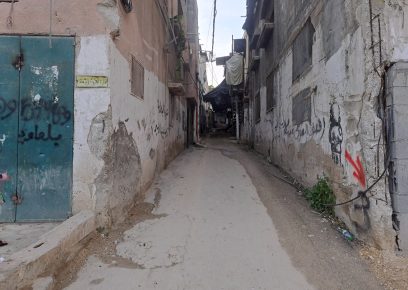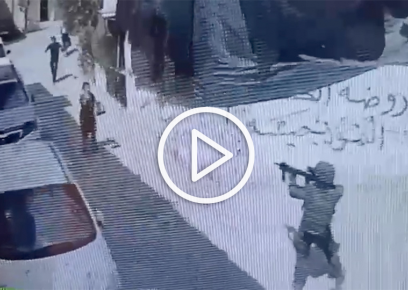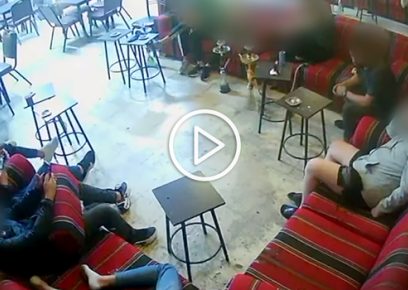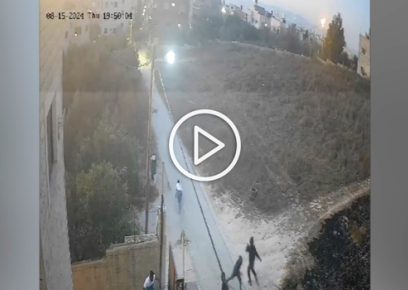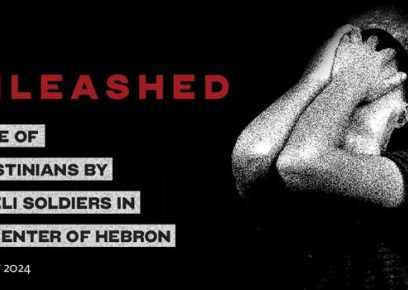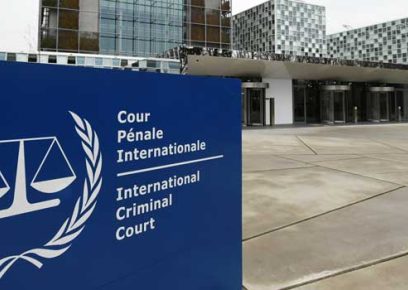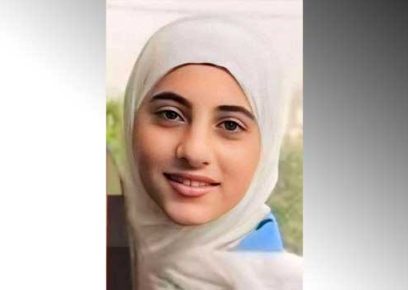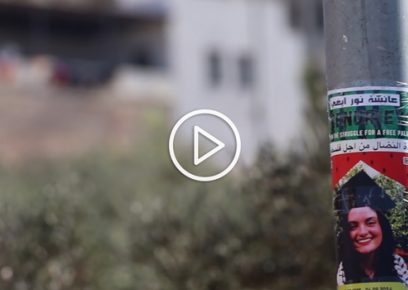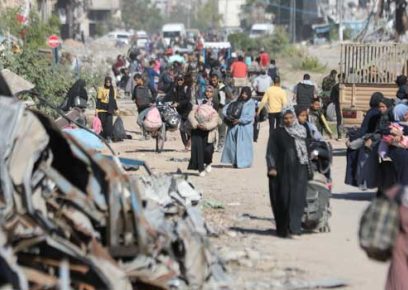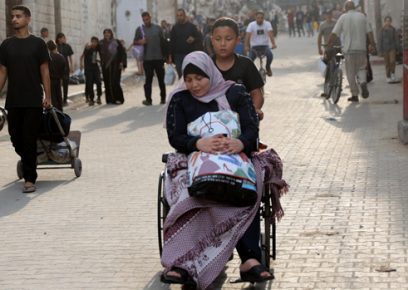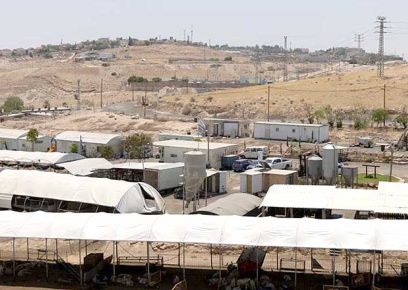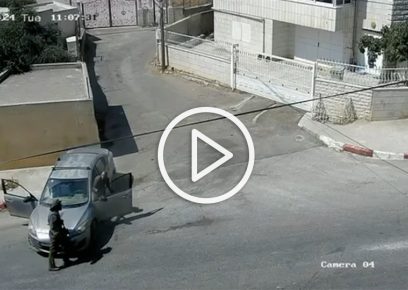On the Agenda
Filter updates:
Israeli forces shot a father and son posing no threat, killing the 14-year-old son, in Tulkarm RC
On 28 August 2024, Israel launched Operation Summer Camp, a series of multi-day raids by Israeli forces on refugee camps and cities in the northern West Bank. During these raids, dozens of people were arrested, and extensive damage was inflicted on civilian infrastructure. The military presence in the camps and cities led to clashes and exchanges of fire between the forces and Palestinian gunmen. Dozens of Palestinians were killed during the operation...
Soldiers severely abused Palestinians in al-Fawar R.C. under the pretext of a military operation
On Wednesday, 18 September 2024, around 3:00 A.M., hundreds of Israeli soldiers raided al-Fawar Refugee Camp southwest of Hebron, entering in dozens of military vehicles. The troops spread out in the camp, sealed off the entrances to the camp and forbade residents from leaving their homes. They stayed for more than 12 hours, during which time movement was forbidden, shops were shuttered and school was canceled. The troops seized the al-Khatib family’s home, removed the inhabitants and used it as a center for Shin Bet interrogations...
An Israeli force fired at Palestinian youths endangering no one in Kafr ‘Aqab, killing one
On Saturday, 21 September 2024, at around 3:30 A.M., several military and Border Police jeeps arrived on the main road between Kafr ‘Aqab and Qalandia Refugee Camp that leads to Ramallah. The jeeps drove against the flow of traffic, and stopped about 40 meters from the entrance to the camp.
Dozens of settlers attack the village of Jit and kill a local resident. Soldiers arrive later and also attack villagers
On Thursday, 15 August 2024, at around 7:30 P.M., residents of the southeastern neighborhood of Jit noticed dozens of settlers, most of them masked and some armed, approaching the al-Bayada area of the village from the direction of the Gilad Farm outpost. The settlers set fire to vehicles and homes, and when village residents came out to protect their property and belongings, confrontations developed between them and the settlers, which included mutual stone-throwing. About 20 minutes into the attack, Rashid a-Sadeh, 22, left his house with a relative to join the residents defending their homes.
Unleashed: Abuse of Palestinians by Israeli soldiers in the center of Hebron
For over a year, Israel has been waging an unrestrained war against the Palestinian people in the Gaza Strip, the West Bank, and within the State of Israel. The violence that has always characterized the Israeli apartheid regime’s treatment of Palestinians is now appearing in its most direct and exposed form. This report focuses on one facet of this violence: recurring instances of severe abuse of Palestinians by Israeli soldiers in the center of Hebron throughout the summer of 2024...
Personal accountability is a key element in the struggle for justice and freedom for all
The ICC’s issuing of international arrest warrants for Israel’s leaders on the suspicion they committed the crimes of starvation, persecution, and intentionally directing an attack against civilians is one of the lowest points in Israeli history. Unfortunately, all we know about the conduct of Israel in the Gaza Strip over the past year - which was conducted with the knowledge and the direction of the prime minister and the ministerial cabinet – it isn’t surprising that the evidence indicates that Prime Minister Netanyahu and Defense Minister Gallant are responsible for war crimes and crimes against humanity...
Israel soldiers killed a Palestinian girl, 13, at home in Qaryut after entering the village following a settler attack
On Friday, 6 September 2024, at around 3:00 P.M., dozens of settlers, some of them armed, arrived at the southern edge of the village of Qaryut in Nablus District. Soldiers escorting them in a military jeep stopped near the ‘Ein Silon freshwater spring, about a kilometer away from village homes. Some of the soldiers walked up the road leading to the village and stopped about a 100 meters from the homes. From there, they occasionally fired live rounds at residents who gathered to defend the village. The settlers stopped about 100 meters from the homes and pelted them with stones. Three settlers, one of them holding a Molotov cocktail, went towards one of the homes and tried to set it on fire. Residents pushed them away and started chasing them. During the chase, one of the settlers threw a stone that hit Muhammad Musa (28) in the jaw. Musa was taken to hospital and remained there until 18 September.
Israeli soldiers shot and killed an American-Turkish protester endangering no one in the town of Beita
On Friday, 6 September 2024, about 100-150 Palestinians from the town of Beita and around 20 international and Israeli activists gathered for the weekly demonstration against the outpost of Evyatar, built on town land in Jabal Sbeih. Soldiers arrived before noon and deployed near the public park in the area of the Nimer grove, on a hill in the southern part of the town, where prayers are regularly held before the demonstration. At around 12:15 P.M., as locals gathered for the prayers, Ayşenur Ezgi Eygi, 26, an international activist, arrived in the area with other international activists. The prayers proceeded without incident, and then, at around 1:00 P.M., the residents and activists began leaving through the park gate. Most of the residents began making their way back home, with some heading for their cars in the parking lot at the entrance to the park and others walking down the road towards town homes...
The world must stop the ethnic cleansing of northern Gaza
The magnitude of the crimes Israel is currently committing in the northern Gaza Strip in its campaign to empty it of however many residents are left is impossible to describe, not just because hundreds of thousands of people enduring starvation, disease without access to medical care and incessant bombardments and gunfire defies comprehension, but because Israel has cut them off from the world. Ever since Israel’s current operation in the northern Gaza Strip began on 5 October, the area has been under a near complete siege, relentlessly pummeled by the military...
Israeli NGOs warn international community it will be complicit if Israel forcibly transfers the population of Northern Gaza
Human rights NGOs based in Israel today called on the international community to take action now to prevent Israel from forcibly transferring hundreds of thousands of Palestinians who have remained in the Northern Gaza Strip, including by denying entry of essential humanitarian aid and fuel. The Israeli ceasefire coalition, Gisha, B’Tselem, PHR-I and Yesh Din, said that there are alarming signs that the Israeli military is beginning to quietly implement the Generals’ Plan, also referred to as the Eiland Plan, which calls for complete forcible transfer of the civilians of the northern Gaza Strip through tightening the siege on the area and starving the population.
Settlers driving out Wadi al-Qalt community with state assistance
Over the past decade, settlement outposts and “agricultural farms” have become one of Israel’s primary methods for taking over land in the West Bank and driving Palestinian communities out. Unlike the bureaucratic process involved in establishing an official settlement, ‘pirate’ outposts can be set up quickly, with relatively few resources and laborers. Taking control of farmland via setting up outposts also allows the state to evade direct responsibility for land seizure and shrug off the violent, illegal acts by settlers involved in the process, while effectively supporting them in various ways. By using these settlers as proxies, the state frames the establishment of outposts as an issue of law enforcement rather than policy.
Deir Dobwan, Ramallah District: Soldier steals Palestinian’s car after he and two settlers blocked its way with civilian pickup truck
On Tuesday, 10 September 2024, at around 11:00 AM, Samir Safi was driving his car in the eastern part of the village of Deir Dobwan when a civilian pickup truck entered his lane and blocked his way. In the truck were a soldier and two settlers. Safi reversed and tried to turn around, at which point the soldier got out of the truck, ran over to Safi's car, opened the door and ordered him to get out. The settler driving the truck turned it around and stopped, and then got out with the other settler, both of them carrying clubs. Safi got out of his car, and the soldier ordered him to leave. Safi moved away, and the soldier got in the car and drove off. Safi reported the theft to the Palestinian DCO.
Israel’s regime of apartheid and occupation is inextricably bound up in human rights violations. B’Tselem strives to end this regime, as that is the only way forward to a future in which human rights, democracy, liberty and equality are ensured to all people, both Palestinian and Israeli, living between the Jordan River and the Mediterranean Sea.
